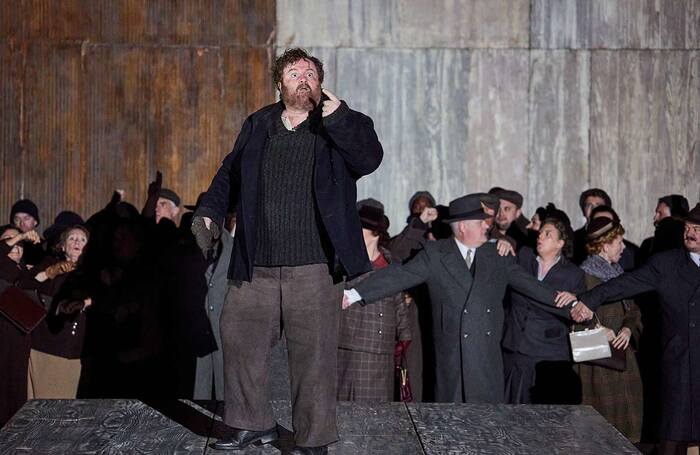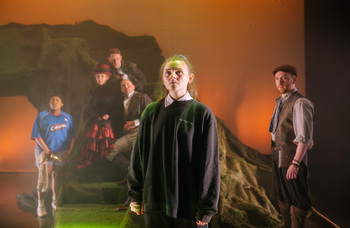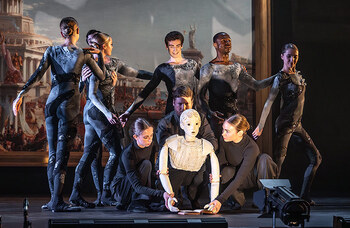Flawed but fascinating production of Benjamin Britten’s great opera
There are many moments of gripping dramatic intensity in English National Opera’s revival of David Alden’s Peter Grimes, as well as a fine role debut by Gwyn Hughes Jones as Grimes. Yet the production of Benjamin Britten’s great opera doesn’t fully cohere.
In choosing George Crabbe’s poem The Borough as the source for his opera, Britten deliberately built in multiple layers of meaning. Set in his native Suffolk, on the surface the opera is the story of outsider Grimes and his persecution by the small-minded and hypocritical citizens of the fishing village of Aldeburgh. But it is also about Britten and his partner Peter Pears as outsiders themselves: conscientious objectors in the Second World War and gay men in an intolerant age.
Alden’s production, the second revival since its premiere in 2009, shifts the time from the early 1800s of Crabbe’s poem to 1945, the year of the opera’s premiere. The dull colours of the post-war era predominate, especially the opening scene, set in a fishery. One can practically smell the fish and the sea.
Paul Steinberg’s massive angular set, textured in greys and blues, is at its most effective in the second act, capturing the mode of a sunlit seafront, where Ellen Orford (sympathetically played by Elizabeth Llewellyn) has taken Peter’s newest apprentice. Ellen and the sea captain Balstorde (Simon Bailey, in fine form) are the opera’s moral centre, fighting the hypocrisy of the town and Peter’s unstoppable self-destruction.
Yet the quirkiness of the town’s denizens is exaggerated – sometimes distractingly so. The two nieces (Cleo Lee-McGowan and Ava Dodd, perfectly cast) look like a disturbing Diane Arbus photo come to life as they synchronise their jerky motions. Their Auntie is splendidly portrayed by Christine Rice, wearing a massive fur coat and looking on wryly at the antics of her fellow citizens. The town’s leading busybody, Mrs Sedley (Anne-Marie Owens) has a twisted relationship with her laudanum supplier, the “quack” Ned Keene (great comic flair from Alex Otterburn). As Grimes, Jones is a formidable actor, ranging from cruel and paranoid to anguished and dreamy. He even looks the part, with baggy, rough clothes and unkempt hair.
The ocean is a character, too – a powerful, unpredictable god that can drown a man or flood a city and cannot be placated. The line sung by the townspeople: “O tide that waits for no man / spare our coasts”, carries a resonance in our age.
The return of this work to ENO, a company strongly associated with Britten, should be welcomed despite this production’s shortcomings. Given the ENO’s precarious existence, it is fitting and touching that conductor Martyn Brabbins brings the entire orchestra on stage to take a bow at the evening’s end.
More Reviews
More Reviews
Recommended for you
Most Read
Across The Stage this weekYour subscription helps ensure our journalism can continue
Invest in The Stage today with a subscription starting at just £7.99














